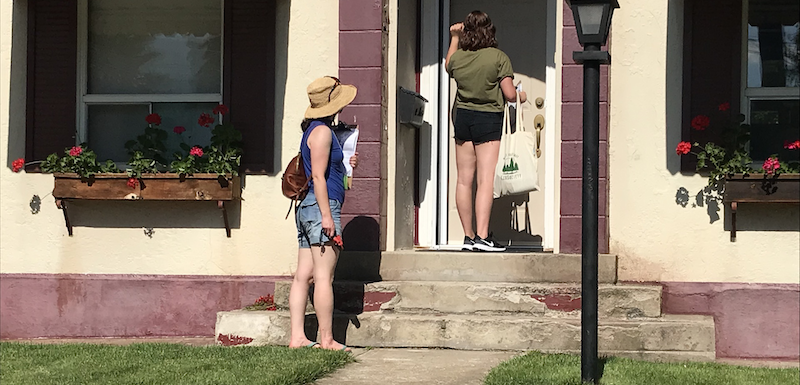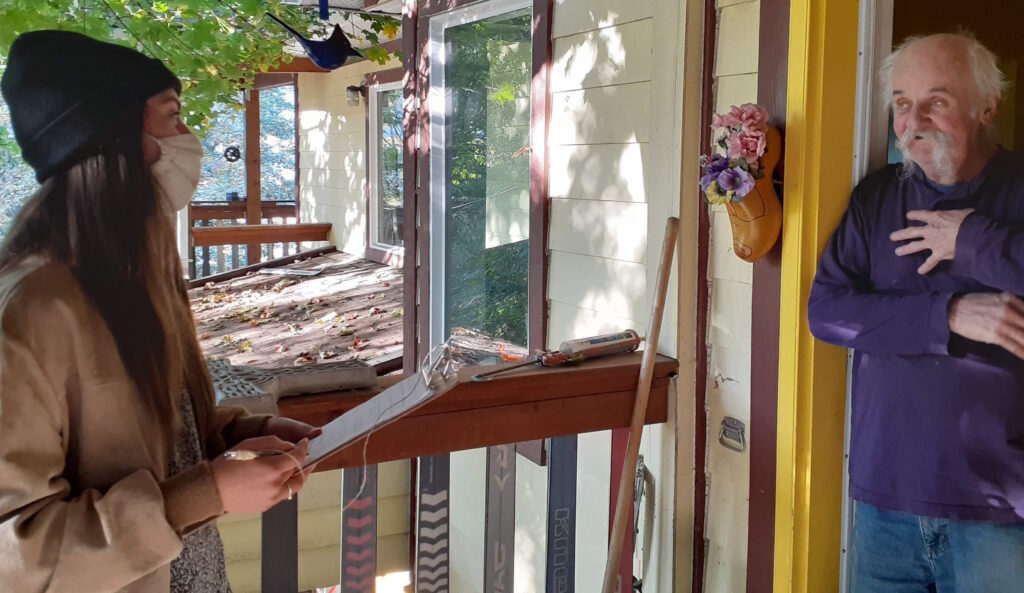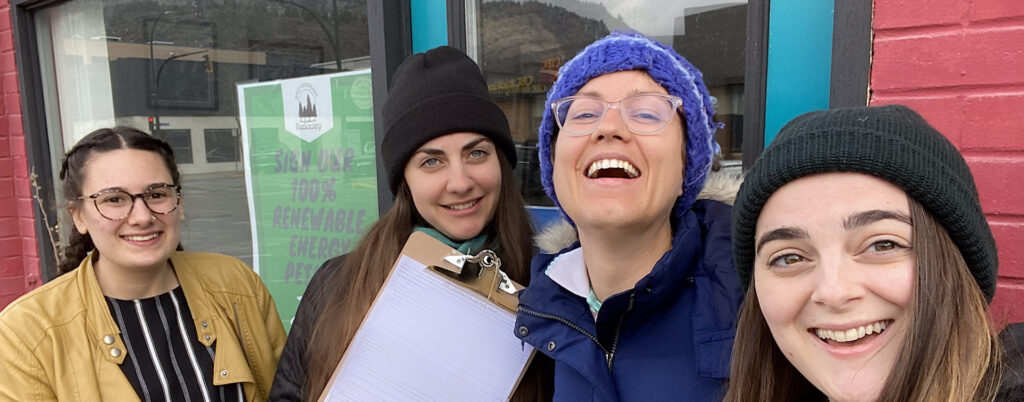Changing the Energy Conversation

Projects Sponsor
We need to have a conversation: The West Kootenay EcoSociety builds support for climate action outside the city walls.
Rural Canadians––while they stand to be among the most affected––are often not as engaged as city-dwellers on the subject of climate and energy policy. Consequently, while urban Canadians tend to be quite supportive of employing aggressive measures to combat climate change, there’s less buy-in outside of our downtowns.
That’s a problem for all of us.
Listening to one another and finding common ground on which we can build support for sensible energy policies has never been more vital. There’s a need for a conversation with non-urban Canadians about the urgent measures we must take to combat global warming, and the West Kootenay EcoSociety is breaking the ice.
The West Kootenay EcoSociety Deep Engagement program seeks to employ deep canvassing––the practice of instigating meaningful conversations with someone on the other side of an ideological fence––in the battle against climate change.
The ten to twenty-five minute deep conversations, facilitated by the society’s team of trained volunteers, involve listening to the person on the other end of the phone and asking genuinely curious questions. The idea behind Deep Engagement is that by meeting people where they’re at, and truly understanding where they’re coming from, it’s possible to find a way forward together.

And while greeting card-simple in theory, it’s textbook-complex in practice, and can be IKEA-instruction level demanding in effort.
The West Kootenay EcoSociety learned about the development and uses of deep canvassing on other social issues from US colleagues and published academic papers. They then shadowed two deep canvass programs for one week each in 2019 and 2020, getting access to their scripts, data tracking systems, and learnings to consider for their project development. It was clear from the team’s research that deep canvassing is the most effective form of persuasion and yet it had never been applied systematically in climate and energy work.
At the same time, the West Kootenay team’s efforts to identify supporters of the energy transition in a heavy industry company town of Trail B.C., were proving to be not very fruitful and so an opportunity presented itself. The West Kootenay EcoSociety had on their radar what seemed like the perfect testing ground for deep canvassing on climate and energy on their radar and, as they saw it, work to do.
The team’s first challenge was developing a successful script, one that got to the heart of the conflict that was inside each person who was on the fence or part of the “mushy” middle on climate action. Working with their staff and a couple of core volunteers, over eight hundred conversations were held over eighteen months.
Their door-to-door program had to be adapted to the phone when COVID hit but the work continued. In total fifty-eight script iterations were tested to determine which was the most successful the test being that if the script consistently moved at least one in three people to be more supportive of government action on climate change and the 100% clean and renewable energy transition, it was a keeper.
A volunteer training and skills-building program was developed and, to-date, there have been weekly deep canvases involving up to twenty volunteers. A phone-based program and a team culture that supports volunteers to have these transformational and sometimes very challenging conversations was also developed.
Regular one-on-one check-ins with volunteers, practicing radical hospitality––so all volunteers feel supported and have what they need to show up to deep canvasses––and ongoing volunteer skill refining workshops are key components of the operation.
All conversation data is meticulously tracked and follow-up communications are sent to people deep canvassed from the tean’s solutions-based storytelling magazine, livinghere.ca.

The society was lucky work in partnership with the New Conversation Initiative, who’s founders developed the deep canvassing method over ten years ago. They also had invaluable support from the Yale Program on Climate Change Communications to develop the scrip and were able to build off the learnings of other US-based organizations deep canvassing on other issues and climate communications projects, but still this is a local effort. The project has been lead exclusively by rurally-based women and non-binary people between twenty and thirty-seven years of age.
The West Kootenay EcoSociety Deep Engagement program is the first and only successful––more than a third of the people canvassed shifted their position to being more supportive of government action on climate change and clean energy––deep canvass in Canada. It’s also the first complete deep canvassing program on climate and energy issues anywhere in the world.
But, the team hopes, not for long. The team is currently developing the program so that it can be scaled to other community groups across both Canada and the US. The West Kootenay team plans to be there to support any other groups who want to start talking and listening to strangers in their neck of the woods.
Sometimes you just have to strike up a conversation, maybe about the weather, to get things done.













